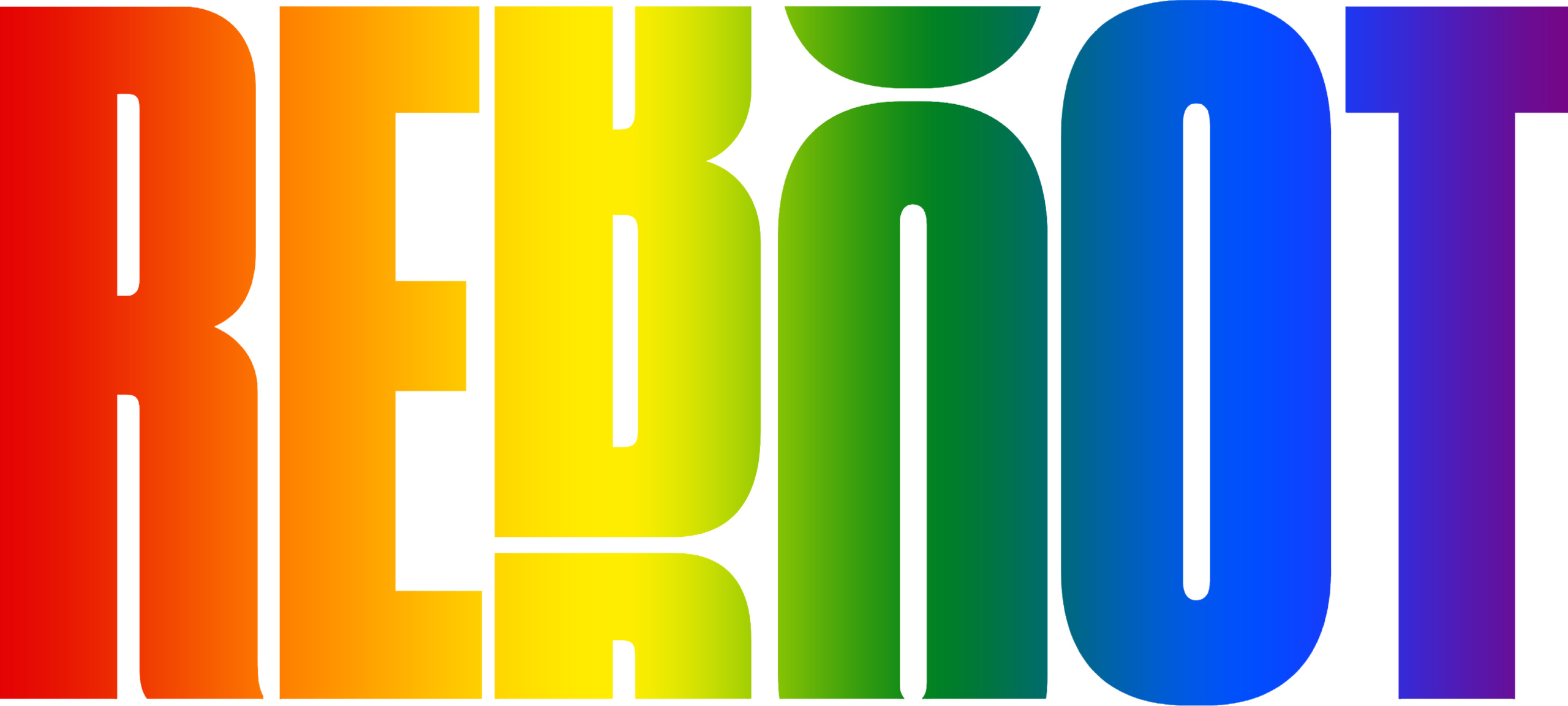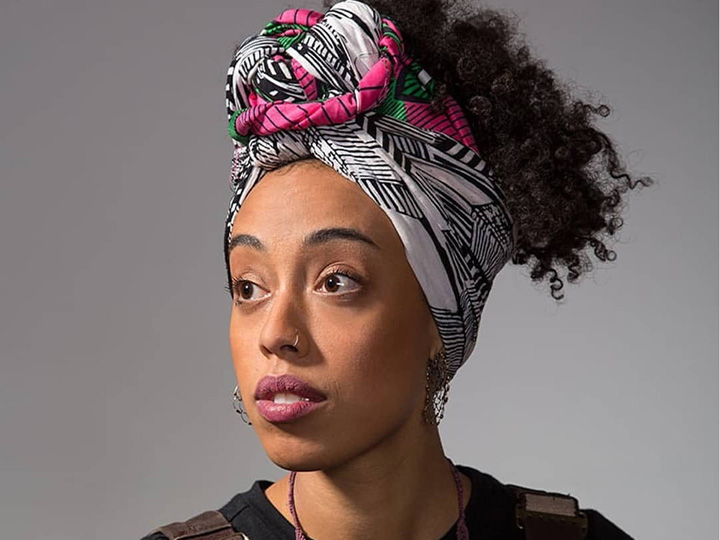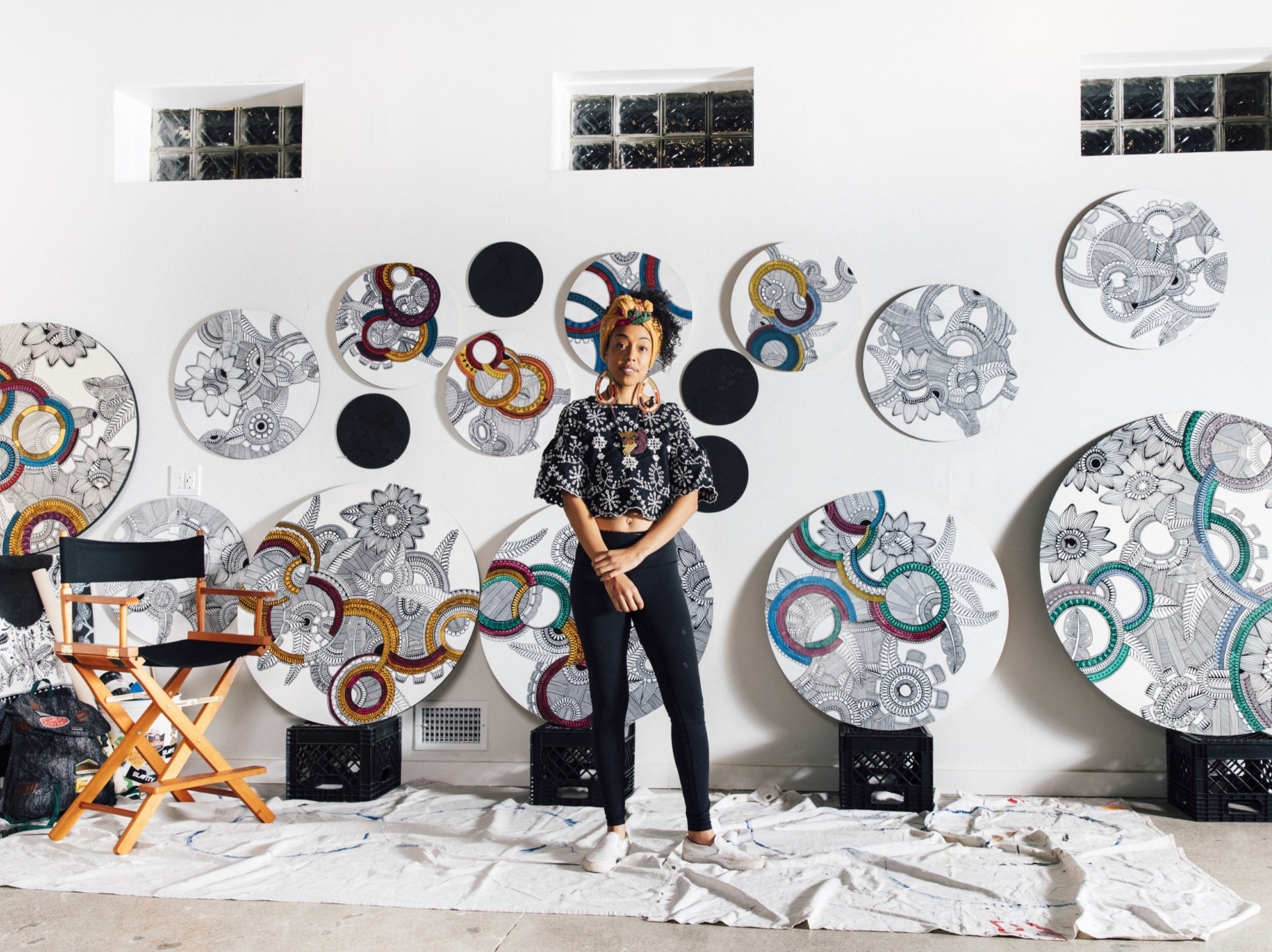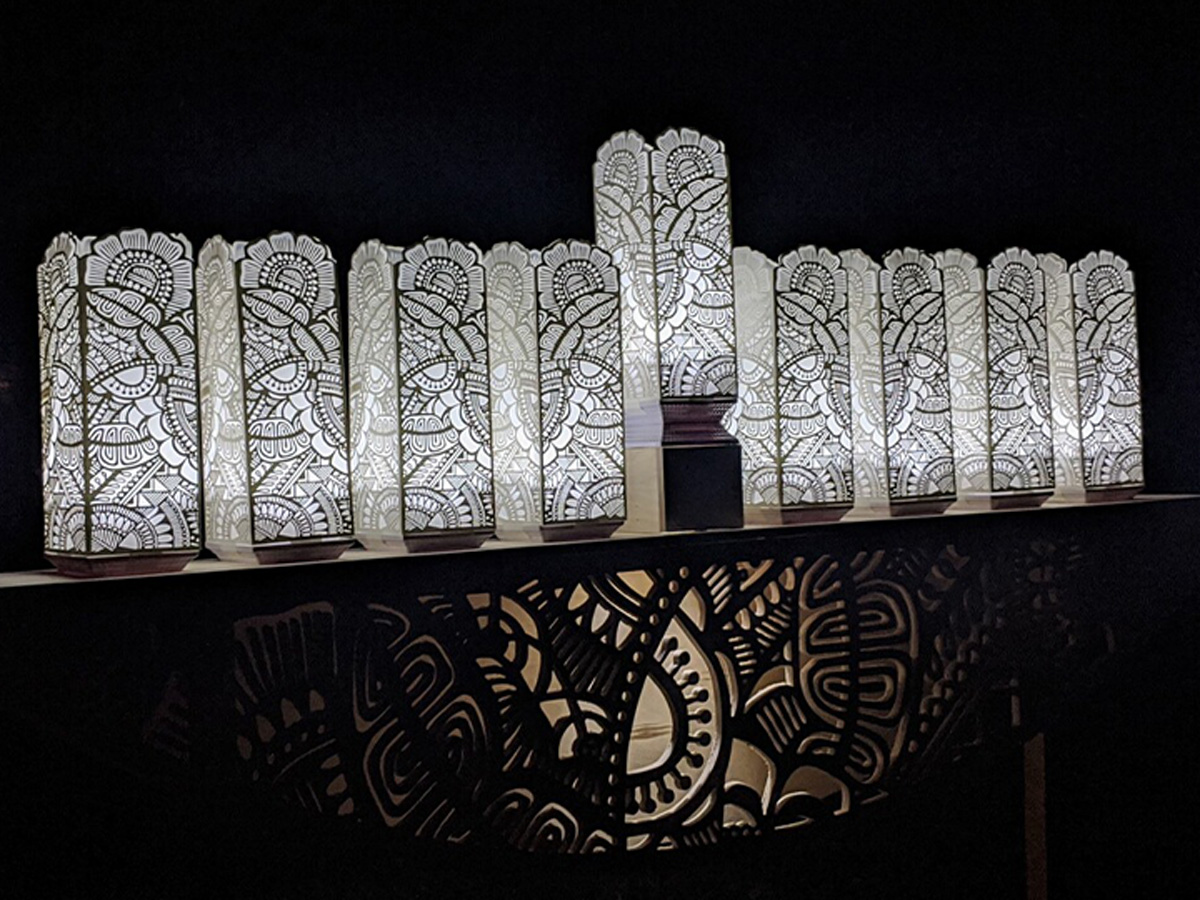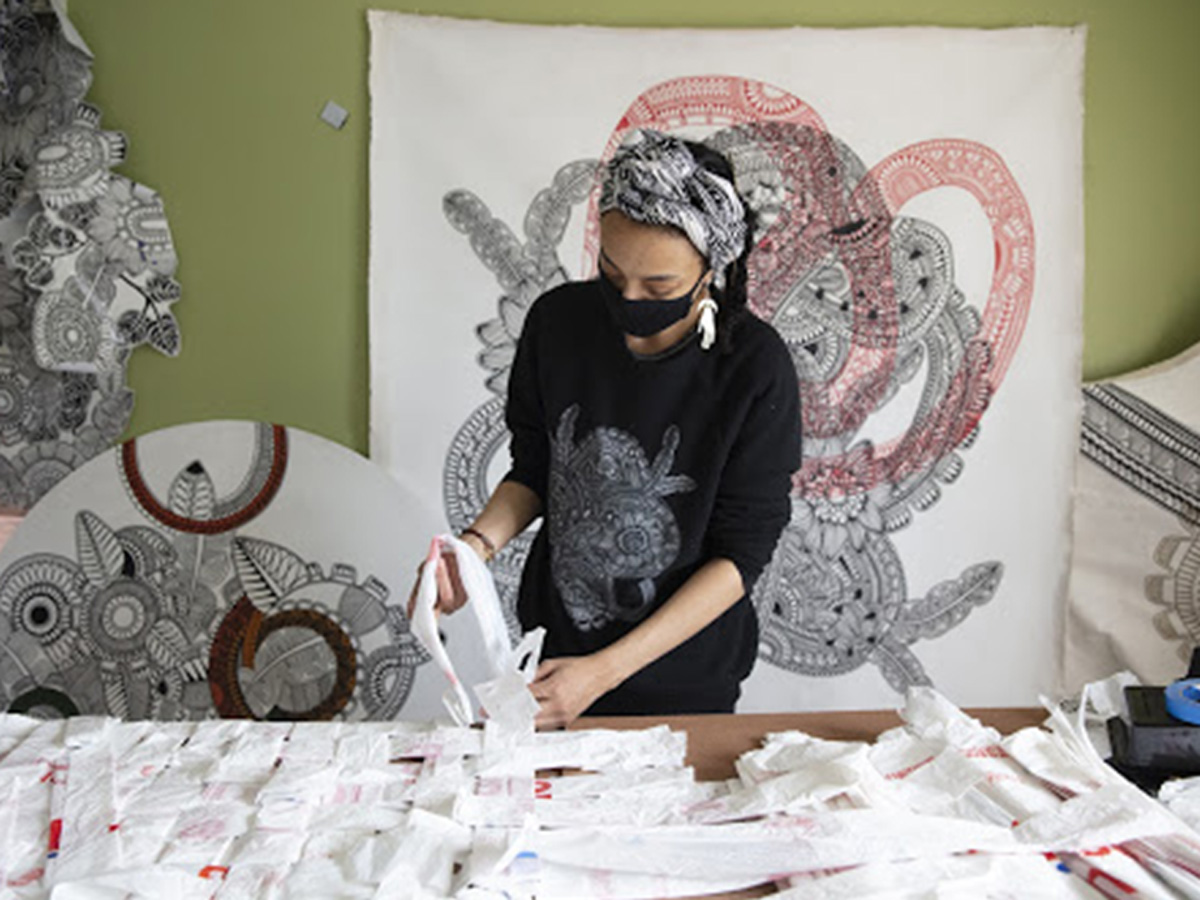Listening As A Freedom Practice: Making Ritual On Juneteenth

I know of Juneteenth as Freedom Day, but really it is a day nested in a season of remembering and communing with my Black ancestors, alive and transitioned. I feel overcome with gratitude for the ways they preserved the deep faith they kept and handed down. I feel immense sorrow for what they had to endure and the ways, as a country we’ve yet to fulfill our promises of freedom and reparations. I don’t pay attention to the performative ways companies, corporations, and social media “shows up” for Juneteenth. I do, however; have abundant energy to talk about the ways I recommit to myself and my community during this time through my practices of art, mothering, and seeking to be a good steward of the land I live on.
I’ve been thinking a lot about what it means and feels like to be in my body. This is a body of multiplicity and complexity, and also a body made possible by infinite sacrifices and the unwavering strength and faith of my ancestors Black and Jewish. This is a body that was once an egg in my mother’s ovary while she was growing in my grandmother’s womb in the Jim Crow south. To me, my existence is a miracle! Honoring my body is a practice of awareness as much as it is an invitation to honor and heal bits of myself and my lineage. Healing for me comes through the very embodied act of the ancestral listening I do that guides the paintings I make. For me, I am committed to unearthing my family’s stories and archiving and preserving them in my work. The United States of America did not free us on Juneteenth and we are not free in this country now. We gained some freedoms, but mostly unfulfilled promises. It is important to know that we have always had and celebrated our own ways of being sacred, divine, valued, and deserving beings. Juneteenth, for me, is a time to celebrate the ways we kept and are keeping ourselves rooted, committed to liberation, and the ways we need to continue healing. For our extended community, my hope is this is a time of recommitting to their practices of accountability and reparations.
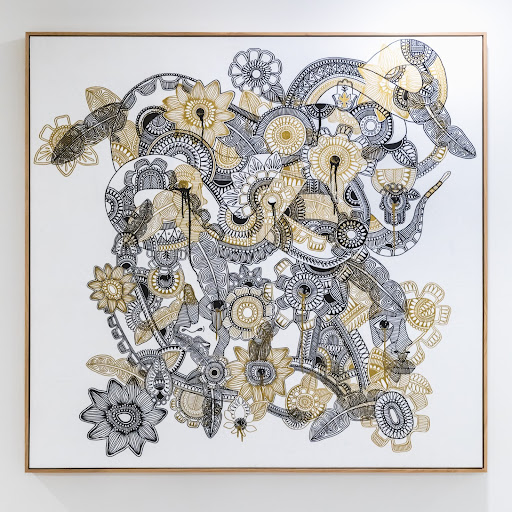
Living Incarcerated, 2020 oil and acrylic on canvas. LivingIncarcerated is a release and meditation through pattern language to process and discuss belonging, place, hope, space, and freedom.
This year, my child and I will say blessings amongst our Ancestor Garden. It is here that we’ve planted native trees upon the passing of relatives and it is our intention that the care and tending of the trees be an act of honoring and remembrance. I know in my lifetime, I will not enjoy the shade or even the fruits of some of the trees we plant, and yet this act of planting is an offering to this land and a visual reminder of the long practice of hope. I want my child to know what is possible and necessary when we nurture and have relationships with land and trees because they are living and like us worthy of dignity. It is here with our trees that I will make ritual of telling my child on all days, but Juneteenth specifically, stories that don’t center on Black trauma. My child will grow up knowing stories and the lives of all our ancestors Black and Jewish before they were stolen, forced from their homes, chained, and taken to concentration camps and plantations.
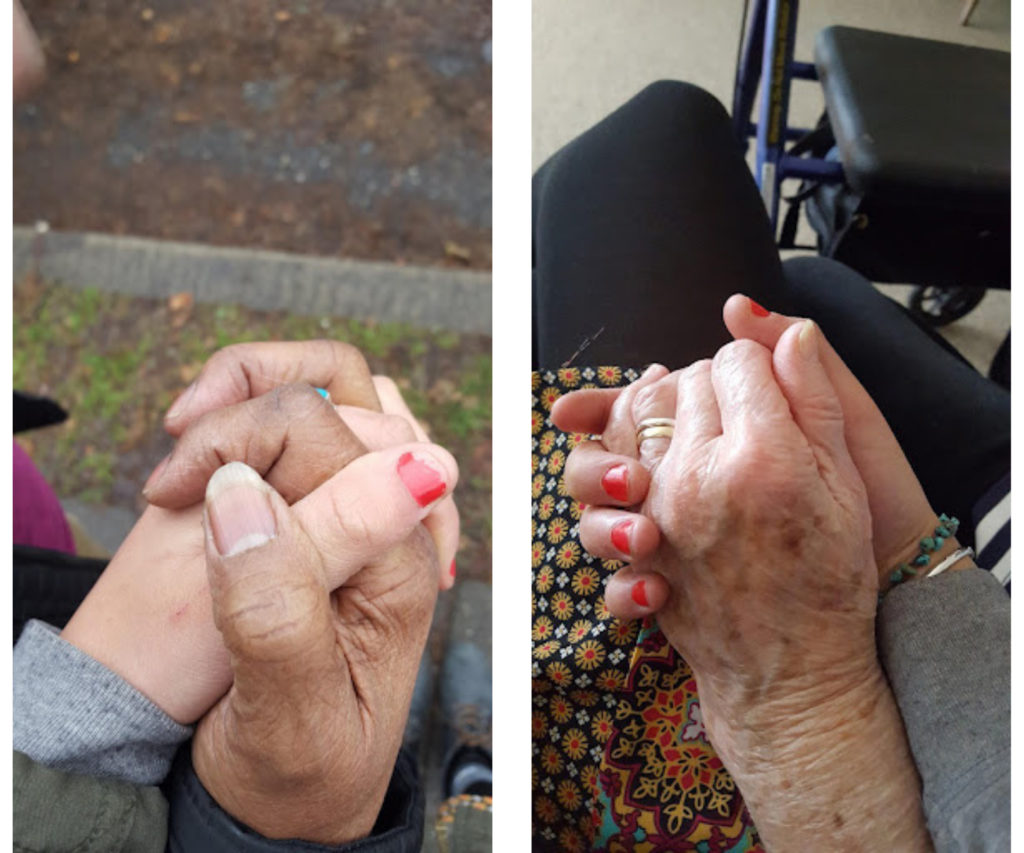
January 3, 2016 (left: holding my grandmother Barbara Davis’s Hand; right: holding my bubbe Shirley Guterson’s hand). When both of my grandmother’s were alive and I lived in Seattle near them, my Sunday ritual was to visit, bring groceries, and go on listening walks.
This, like all seasons, begs for us to explore how, as a collective, do we get free? A collective that understands our individual liberation is born out of collective liberation. How do we practice justice and commit to the complex and long work of seeding, rooting, and nurturing a healing, collaborative, and inclusive present and future? Raising a free Black and Jewish child in this country requires hopefulness and community. As I need to reflect back on the possibilities and remind my child of where we come from, I need those around us to do the same. There is much learning and unlearning to do here and this is generational work that requires each of us to look backward as much as we are looking forward and hold ourselves accountable and stay committed to repairing the world.
